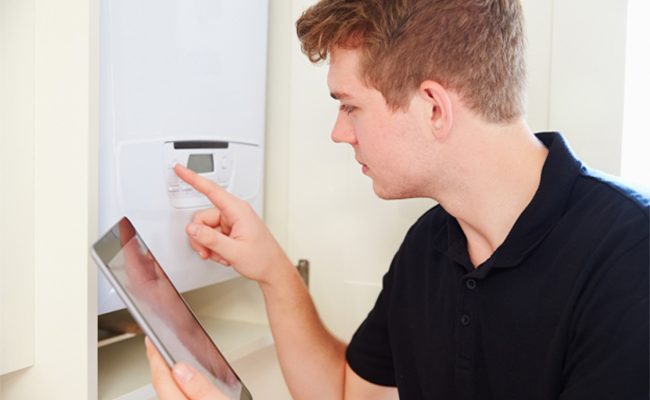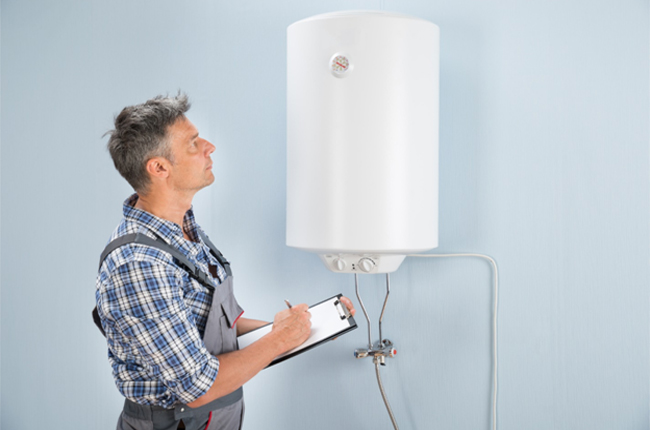
A boiler is a large machine that uses hot water to heat the water inside the homes. The last thing you want is to get cold water whenever you want to shower or when your central heating starts to fail. Fortunately, you can prevent this issue by scheduling annual maintenance and repairing a problem before it worsens.
Boilers are appliances that work by converting thermal energy into mechanical energy. Read more about them on this site here. The appliances convert the heat or thermal energy into steam, and the resulting water can be used for laundry, showering, washing hands, and more. However, some appliances might break down because of a lot of reasons. They might be too old, or some parts need replacement.
Repairing a boiler is usually relatively easy as long as you know where to ask for help. Before calling the experts, you need to determine the following to provide more specific details about your situation.
- What type of boiler is it?
- How old is your appliance?
- What kind of repairs does it need?
- How much does it cost to fix the issue?
Different Types to Know About
Gasoline Types: These boilers use fuel oil or natural gas to heat the water. They are usually small and have a shorter lifespan. They also require less maintenance compared to other types.
Electric Varieties: The electric boiler uses electricity to heat the water. They are larger than gasoline types and have a longer lifespan. They require less maintenance, and there are modern versions that are energy efficient.
Steam Generating Boilers: This type of boiler uses steam to turn the turbine. This is used to apply heat energy to water, incorporating a furnace or a firebox to generate heat.
When one of these types gets damaged, know that you might want to call an expert for help, especially if you don’t have experience repairing them. These appliances are very complex, and some components require proper handling, so prioritizing safety is always better. In the meantime, here are some things that you can do for initial troubleshooting:
Troubleshooting Steps
If your boiler is not heating the water, there is likely a problem with the appliance. Before calling the experts, here are some troubleshooting steps that you might want to know about.
- Turn off the power of the appliances by flipping the switch to the “off” position.
- If you have a gas type, wait until the gas has stopped flowing from the meter before you try to turn off the gas.
- Open all of the water valves on the boiler if applicable.
- Remove any obstructions in or around the boiler that may prevent heat from reaching the appliance from the pipes.
- Inspect all the parts of the appliances for damage. Call the experts to replace any parts that have issues or missing. Be sure to replace all the bolts and screws if they are too old.
- Reattach all the components of the boiler according to instructions in your owner’s manual or online instructions from your manufacturer. If you find that the steps are too complicated, don’t hesitate to call the technicians for help.
When to Contact an Expert?
If you decide to handle the repair yourself, be sure to prepare all the necessary supplies for the work. These include a propane tank, an oven thermometer, a wrench for turning screws, and a bucket for collecting water. You should also make sure to read your boiler’s manual carefully before beginning the repair. This will help you understand how the machine works and ensure that you do the repairs correctly.
However, choosing the DIY route is not recommended. It can cause more problems later on, especially if one lacks technical knowledge of the boiler. It’s also extremely dangerous, and this is where you might want to contact the professionals.
The experts have the tools, knowledge, and experience to do the job right the first time. This is why it’s best to contact a professional boiler repair in London if you notice any signs of trouble. This is especially important if your appliance is too old. The professionals might suggest a replacement so you could save on monthly energy and electricity bills.
What Happens During a Service?

Visual Inspections
Most of the experts will be able to inspect the boiler and see what’s causing the issue. They can adjust the components accordingly, clean the interiors, and look for signs of visible damage. They will also know what to do once they have identified the problem.
Control and Operations
The appliance generally has specific controls and buttons that ensure safety for the owners. These controls are going to be tested by the professionals to see if they are working correctly. They will also fix them if required.
Cleaning the Primary Components
During a service, the technicians will inspect, remove, and clean the various components of the appliances. They will check for any noticeable defects and ensure the proper fitting of the other parts. Some of the things that they will inspect will include the flue ways, heat exchangers, primary burners, and ignition pins. See more about other heating systems at this link: https://smarterhouse.org/heating-systems/types-heating-systems.
Check for the Safety of the Appliance
Some tests and checklists are designed to determine the safety of a device. Some will test the seals, flue effectiveness, boiler operations, heating controls, pressure, gas flow, electrical wires, pilot burners, thermostats, and cables to see if they are functioning well.
Combustion Release
Checking the combustion release and the flue is often part of regular maintenance. The technicians will inspect the pipe from the boiler to the exterior of the house and ensure that the flue is safely fitted. They will also remove any obstructions along the way.
A boiler is a major appliance in any home, and it can be prone to breaking down. Fixing leaks to replacing parts can be easy as long as you call the experts. They will know what to do and prevent the issues from happening in the future. It’s best not to go with the DIY route and always rely on the professionals for your safety.
Leave a Reply